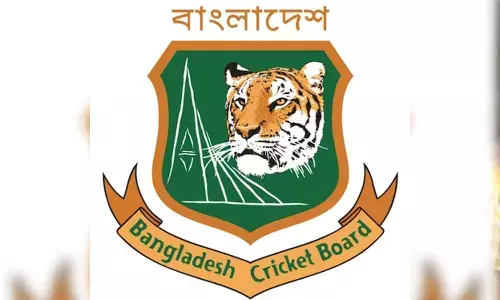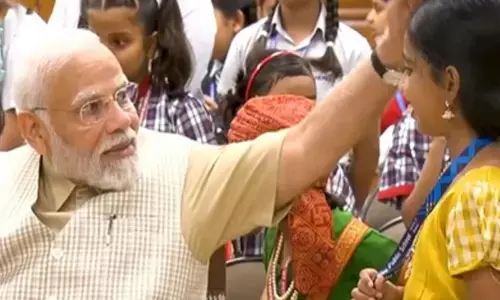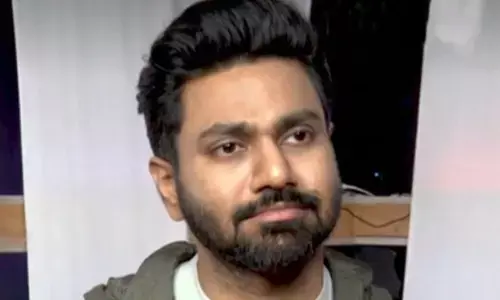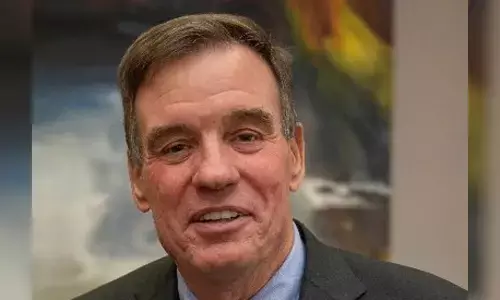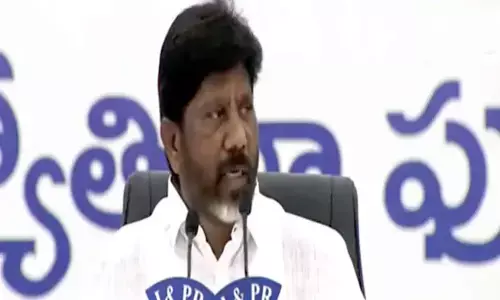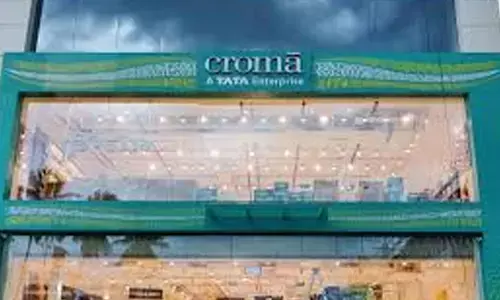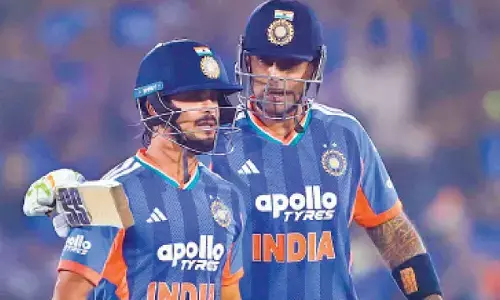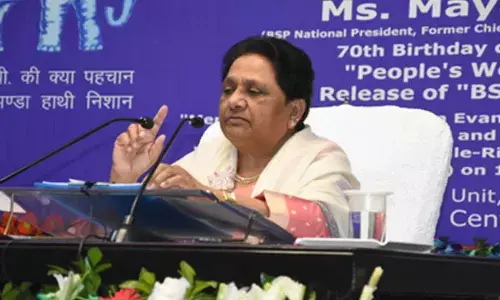Obama's symbolic visit, high on expectations and optimistic on deliverables: Experts

Panelists attending a two-day India-US Dialogues discussion here have said that they see the three-day second visit of President Barack Obama to India in the last four years as being symbolic, high on expectations and optimistic on deliverables.
New Delhi: Panelists attending a two-day India-US Dialogues discussion here have said that they see the three-day second visit of President Barack Obama to India in the last four years as being symbolic, high on expectations and optimistic on deliverables.
.jpg)
Participating in the inaugural session of the event organized jointly by the Observer Research Foundation (ORF) and Network 18 on Saturday evening, the panelists gave their take on four key issues that have been dominating the India-US dialogue space for the past decade - (1) Bilateral trade and economic relations; (2) Next steps in civil nuclear cooperation; (3) Bilateral defence ties and (4) Climate Change.
The panelists included Rick Rossow, Senior Fellow and the Wadhwani Chair in the US-India Policy Studies at the Centre for Strategic and International Studies (CSIS); Vikram Singh, Vice President for National Security and International Policy at the Centre for American Progress (CAP) and former Deputy Assistant Secretary of Defense for South and South East Asia, Peter Tichansky, CEO of the Business Council for International Understanding (BCIU), Rakesh Sood, a former Indian diplomat who served as Permanent Representative to the Conference on Disarmament in Geneva and Dr. C.Raja Mohan, Distinguished Fellow at the ORF.
The 90-minute discussion was moderated by Zakka Jacob, Deputy Executive Editor of CNN-IBN.
Participating panelists said India-US ties are at a significant cross-road, wherein the political leaderships of the two nations would now have to seriously accept and commit to the transformative change taking place in bilateral engagement.
They said India is on the agenda of US and global business, but at the same time, candidly admitted that managing the expectations of both the public and the officials was at best difficult, and that there is an atmosphere of irrational exuberance that needs to be tempered with realism as to where the ties between the two nations was really at, including on the four issues mentioned above.
They said President Obama's second visit would be analyzed on two fronts - (1) Symbolism and (2) Actual Results, and added that Prime Narendra Modi's visit to New York and Washington had gone a long way in arresting the drift that had seeped into India-US ties.
On defence cooperation, the panelists said both India and the US had started out as uneasy partners in what was essentially a buyer-seller relationship. They said the leaderships of both nations were aware of India's huge dependence on Russia to meet its defence requirements, but added that in terms of prospects, defence cooperation and forward planning was at an excellent take-off stage and did not see IPR obstacles coming in the way of growth in this sector.
They talked of there being increased excitement on the Indian side viz-a-vis wanting a robust defence relationship with the US; existence of challenges in both the short and long term; on the defence relationship being slightly bothersome; about Russia continuing to be a major defence supply partner of India and the need for the US to consider other viable options for defence cooperation.
On the way forward for trade and commercial ties, the panelists called for viewing it from a long-term horizon perspective, and described Prime Minister Modi's recent initiatives for attracting investment from abroad as being particularly audacious and very welcome.
The American panelists re-emphasized the need for reining in Delhi's bureaucratic red tapism, and were of the view that in terms of immediate participation in the trade architecture, both bilaterally and globally, they did not see India as having much of a role to play. The Indian panelists, however, insisted that bilateral trade engagement would have to be tempered with a clear understanding of political compulsions, and the will to see it through. Raja Mohan said that India is still playing catch-up with the rest of the world, which was economically moving rapidly.
Sood and Raja Mohan both opined that there was absolutely no need for setting artificial deadlines and called for a rationalization of the system so as to see India as a transcending world power.
Both Indian and American panelists felt that the issue of climate change would dominate the bilateral discussions on Sunday afternoon.
All panelists admitted that challenges exist on both sides to see how best to reduce CO2 emissions. They said the way forward would be to realign complex systems for maximum benefit. This would include greater focus on the renewable energy component framework. The Indian panelists made case for India having a far lower per capita emission level compared to both the US and China.
It was agreed that both countries would need to look for and tap clean sources of energy.
In conclusion, all said that they expected President Obama's visit to be a success as in Washington's eyes, India was back on the radar. They said the agenda is vast; milestones need to be targeted and achieved and called for moving into newer areas of engagement.
ANI
Next Story








